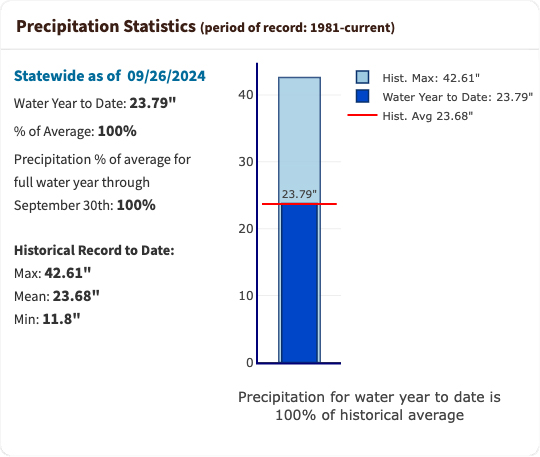Oct. 1 marks the start of a new water year in California, as we head into the cooler, rainier months. In a new blog post, Jay Lund and Alvar Escriva-Bou at the UC Davis Center for Watershed Sciences and Department of Civil and Environmental Engineering reflect on the year just ending and what might be ahead for WY2025.
WY 2024 was unusually normal. That might seem like a contradictory statement, but California’s annual precipitation varies wildly from year to year, so most years are well above or below “average.” But in WY2024, California hit the long-term mean right on the nose.

“The 2024 water year was blissfully normal. Not too wet. No major floods. Not a drought. The year was unusually normal, for the last decade. Little to complain about, except that farmers and environmental interests would like average flows to be higher,” they write.
This ‘average’ year left reservoir storage higher than average at the end of the season, they write. But problems with over-drawing groundwater remain.
California needs to think long-term about its water needs in the face of an unpredictable, changing climate, and long-term economic trends in the state, Lund and Escriva-Bou write. The turn of the water year is a good time to reflect on those challenges.
Media Resources
Happy New Water Year 2025! – Wet, dry, or just plain weird? (California Waterblog)
